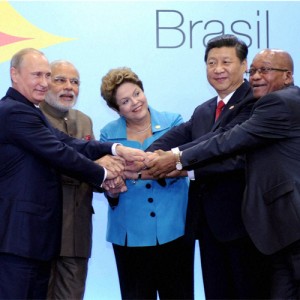Ernani Contipelli , Simona Picciau

Introduction
As a group formed by emerging powers, the BRICS is characterized by its particular profile: a pragmatic politic strategythat presents contradictory actions between its members. Internal cooperation among the BRICS members is becomingmore “institutional” with the creation of its financial institutions, the New Development Bank (NDB) and the ContingencyReserve Agreement (CRA). These have led the group to a next stage in its history without changing its essence.
The NDBhas been created to mobilize resources for infrastructure and sustainable development projects in emerging and developingcountries, and the CRA has been established to provide liquidity to countries experiencing difficulties in their balance ofpayment and to head off future economic crises. Many developing countries are closely observing these financial institutions.
South America appears particularly interested to take advantage of them by attracting investments and obtainingloans from BRICS members in order to develop infrastructure in their countries and to build more informal relationshipswith foreign partners with reduced political commitments. For South America, the BRICS is an example of a pragmaticformula for cooperation in contrast to the modus operandi of traditional powers. In other words, poor countries would havean alternative to the International Monetary Fund and World Bank. Relations between the BRICS and South America arecharacterized by a pragmatic approach that reflects the “way of being” of the group and the necessities of modernization ofthe region. This article analyzes the particular relationship that BRICS is establishing with the countries of South Americausing its institutional status and pragmatic approach.
Full text: The Institutional Status of the BRICS and Pragmatic Cooperation: The Case of South America
Author Introduction:
Ernani de Paula Contipelli – PhD, Director General and Founding Member of the Center for European Strategic Research; Professor of Political and Constitutional Law at the Faculty of Juridical Sciences, Universidad Autónoma de Chile and Unochapeco, Brazil; Calle Perez Valenzuela 1209, dep. 602, Providencia, Santiago, Chile; E-mail: [email protected]
Simona Picciau – PhD, Researcher, Project Coordinator and Founding Member of the Center for European Strategic Research (CESR); Via Enzo Loy 18, 09134 Cagliari, Italy; E-mail: [email protected]